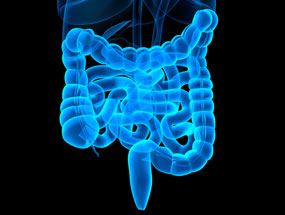Article
Researchers Work to Develop a Nonantibiotic Treatment for Clostridium difficile
Author(s):
There is a critical need for nonantibiotic therapies to treat CDIs, and the researchers say, “Knowledge of the mechanism of C. difficile toxin regulation will be critical in developing novel nonantibiotic therapies to target the toxins for the treatment of this pathogen of significant public health importance.â€

Researchers have identified a new target for the development of a nonantibiotic therapy to treat Clostridium difficile infections (CDIs). Authored by Charles Darkoh, PhD, of the Department of Epidemiology, Human Genetics, and Environmental Sciences, Center for Infectious Diseases, at the University of Texas Health Science Center, School of Public Health in Houston, TX, and colleagues, a paper describing the research was published in the journal mBio on August 16, 2016.
CDIs “account for most of the cases of antibiotic- and hospital-associated diarrhea with defined etiology worldwide and are a frequent cause of morbidity and mortality in older hospitalized patients,” according to the authors. Antibiotics are the traditional treatment, but also the biggest risk factor for CDI. There is a critical need for nonantibiotic therapies to treat CDIs, and the researchers say, “Knowledge of the mechanism of C. difficile toxin regulation will be critical in developing novel nonantibiotic therapies to target the toxins for the treatment of this pathogen of significant public health importance.”
The A and B toxins are, say the researchers, “directly associated with the disease,” and they go on to explain, “targeting these toxins by inhibiting either their production or their activity is deemed a promising approach.” In this study, the researchers were able to identify a toxin regulatory pathway by using a genetic approach.
The researchers say, “We systematically deleted the agrB1D1 and agrB2D2 quorum signaling loci from the C. difficile 630 and R20291 strains and evaluated the mutants for toxin production.” The results show that “agrB1D1 locus is responsible for generating the TI signal, a peptide thiolactone required to activate toxin production,” they say, and further, “the agrB1D1 mutant is unable to produce toxin because it cannot generate the TI signal.”
They conclude, “Overall, our current findings have uncovered a promising target for the development of a novel nonantibiotic therapy to combat C. difficile, a multidrug-resistant pathogen of significant public health importance.”
Related Coverage:
- Deploying Bacteriophages Against Clostridium Difficile Infections
- A Case Study of Clostridium Difficile Infection in Hemato-Oncological Patients
- Latest News and Updates on C. Difficile Infection Management and Treatment





